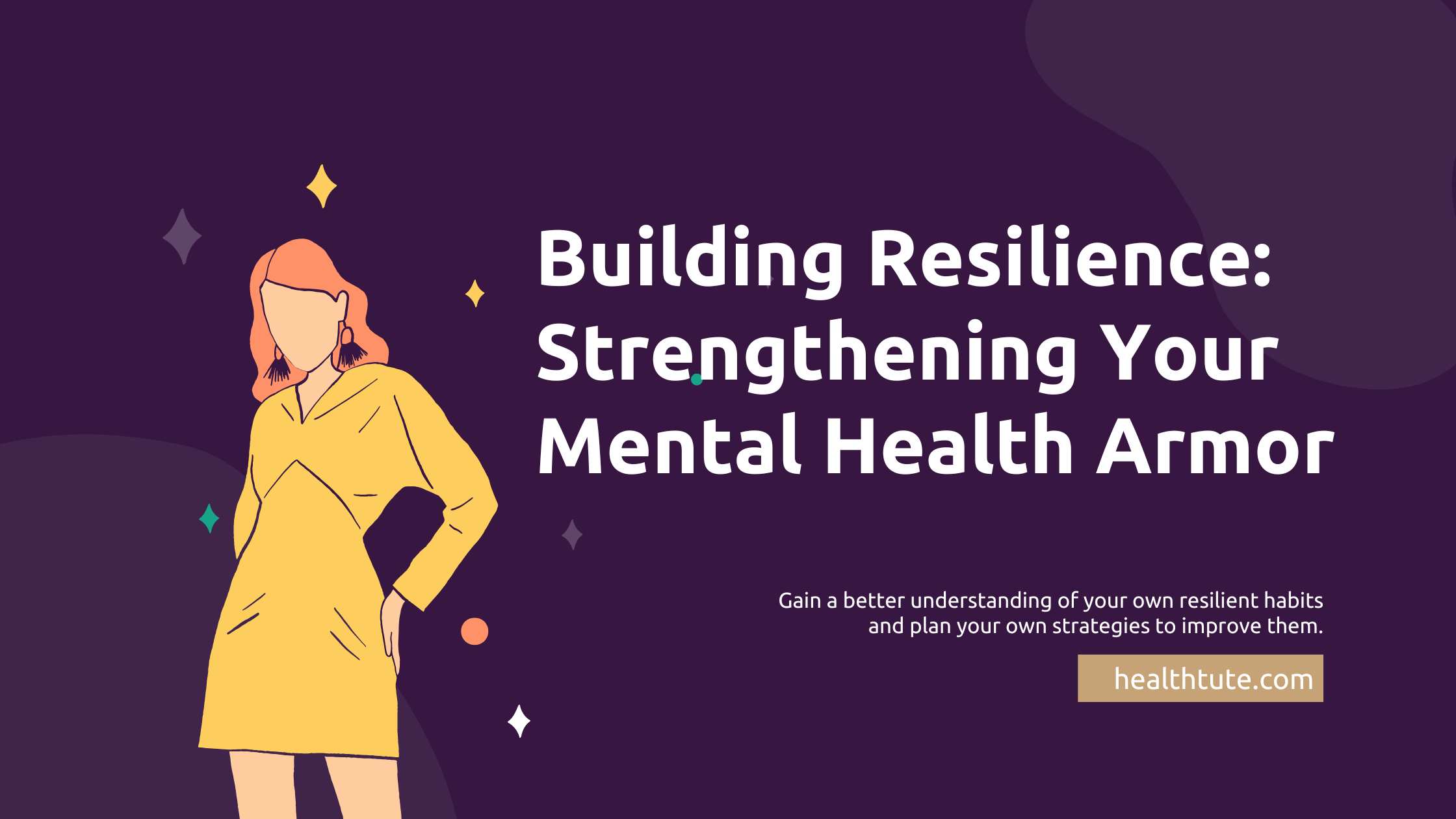Life is an unpredictable journey filled with various challenges and obstacles that can put a strain on our mental well-being. The ability to cope with adversity and bounce back from difficult situations is known as resilience. In this article, we will delve into the significance of resilience in maintaining robust mental health and explore effective ways to build and strengthen this vital skill.
Understanding Resilience
1.1 Definition of Resilience
Resilience refers to the capacity to adapt and thrive in the face of adversity, trauma, or stress. It does not mean being immune to difficulties but rather having the inner strength to withstand and recover from them.
1.2 Importance of Resilience for Mental Health
Resilience plays a crucial role in safeguarding our mental health. It acts as a protective shield, reducing the risk of developing mental health disorders such as anxiety and depression. When faced with challenging situations, resilient individuals can maintain a positive outlook, effectively cope with stress, and bounce back quicker.
Factors Influencing Resilience
2.1 Genetics and Personality Traits
Some people may be naturally more resilient due to their genetic makeup and inherent personality traits. However, resilience is not solely predetermined, and it can be nurtured and developed over time.
2.2 Supportive Relationships
Having a strong support network of family, friends, and mentors can significantly impact one’s resilience. These relationships provide emotional validation, encouragement, and practical assistance during tough times.
2.3 Coping Strategies
The ability to employ healthy coping strategies is essential in building resilience. Such strategies may include problem-solving, seeking social support, engaging in physical activity, and practicing mindfulness.
Building Resilience
3.1 Cultivating a Positive Mindset
Maintaining a positive mindset helps shift the focus from problems to solutions. Positive thinking fosters optimism and empowers individuals to see setbacks as temporary and manageable challenges.
3.2 Developing Emotional Awareness
Understanding and acknowledging emotions is a crucial aspect of resilience. Emotionally aware individuals can effectively process their feelings and prevent negative emotions from overpowering them.
3.3 Building a Strong Support Network
Having a reliable support network provides a sense of belonging and security. Being able to lean on others during tough times can bolster resilience and encourage personal growth.
3.4 Enhancing Problem-Solving Skills
Developing effective problem-solving skills enables individuals to tackle challenges in a structured and organized manner. This approach fosters confidence and self-assurance.
3.5 Engaging in Regular Physical Activity
Physical activity has numerous mental health benefits, including reducing stress and anxiety. Regular exercise releases endorphins, which act as natural mood lifters.
3.6 Practicing Mindfulness and Meditation
Mindfulness and meditation cultivate present-moment awareness and inner calmness. These practices can help individuals manage stress and improve their ability to adapt to difficult circumstances.
3.7 Embracing Change and Adaptability
Resilient individuals embrace change as a natural part of life and view it as an opportunity for growth. Flexibility and adaptability allow them to adjust to new situations with ease.
Overcoming Adversity and Stress
4.1 Identifying Stress Triggers
Identifying stress triggers is crucial in managing stress effectively. By recognizing these triggers, individuals can implement appropriate coping strategies.
4.2 Implementing Stress Management Techniques
Practicing stress management techniques, such as deep breathing exercises, progressive muscle relaxation, and time management, can significantly reduce stress levels.
4.3 Seeking Professional Help
When facing overwhelming challenges, seeking support from mental health professionals can provide valuable guidance and tools to build resilience and cope with difficulties.
Embracing Failure and Learning from It
5.1 Understanding the Power of Failure
Failure is an inevitable part of life, and it presents valuable opportunities for growth and learning. Embracing failure as a stepping stone to success enhances resilience.
5.2 Transforming Failures into Opportunities
Resilient individuals use failure as a chance to gain insights, make necessary adjustments, and persevere toward achieving their goals.
Nurturing Self-Compassion
6.1 Being Kind to Oneself
Practicing self-compassion involves treating oneself with kindness, especially during challenging times. Self-compassion encourages self-care and reduces self-criticism.
6.2 Celebrating Achievements
Recognizing and celebrating personal achievements, no matter how small, boosts self-esteem and reinforces resilience.
Fostering Resilience in Children and Teens
7.1 Encouraging Open Communication
Encouraging open and honest communication with children and teens creates a safe space for them to express their emotions and concerns.
7.2 Teaching Problem-Solving Skills
Equipping young individuals with problem-solving skills empowers them to navigate challenges and build resilience from an early age.
7.3 Promoting Healthy Coping Mechanisms
Encouraging healthy coping mechanisms, such as creative expression and physical activity, helps young minds develop resilience.
Conclusion
Building resilience is essential for strengthening our mental health armor. By cultivating a positive mindset, developing emotional awareness, nurturing supportive relationships, and implementing effective coping strategies, we can face life’s challenges with greater confidence and adaptability. Embracing failure, practicing self-compassion, and seeking professional help when needed are powerful tools in building resilience. Let us strive to foster resilience in ourselves and the younger generation, creating a world of mentally strong individuals capable of thriving amidst adversity.
FAQs
- What is resilience, and why is it crucial for mental health? Resilience is the ability to bounce back from adversity and maintain a positive outlook. It is crucial for mental health as it reduces the risk of developing conditions like anxiety and depression.
- Can resilience be developed over time? Yes, resilience can be developed and strengthened through various practices and coping strategies.
- How can mindfulness and meditation contribute to resilience? Mindfulness and meditation promote present-moment awareness and inner calmness, which can help manage stress and improve adaptability.
- Is seeking professional help a sign of weakness? No, seeking professional help is a courageous step towards building resilience and effectively coping with challenges.
- How can parents foster resilience in their children? Parents can foster resilience in children by encouraging open communication, teaching problem-solving skills, and promoting healthy coping mechanisms.

